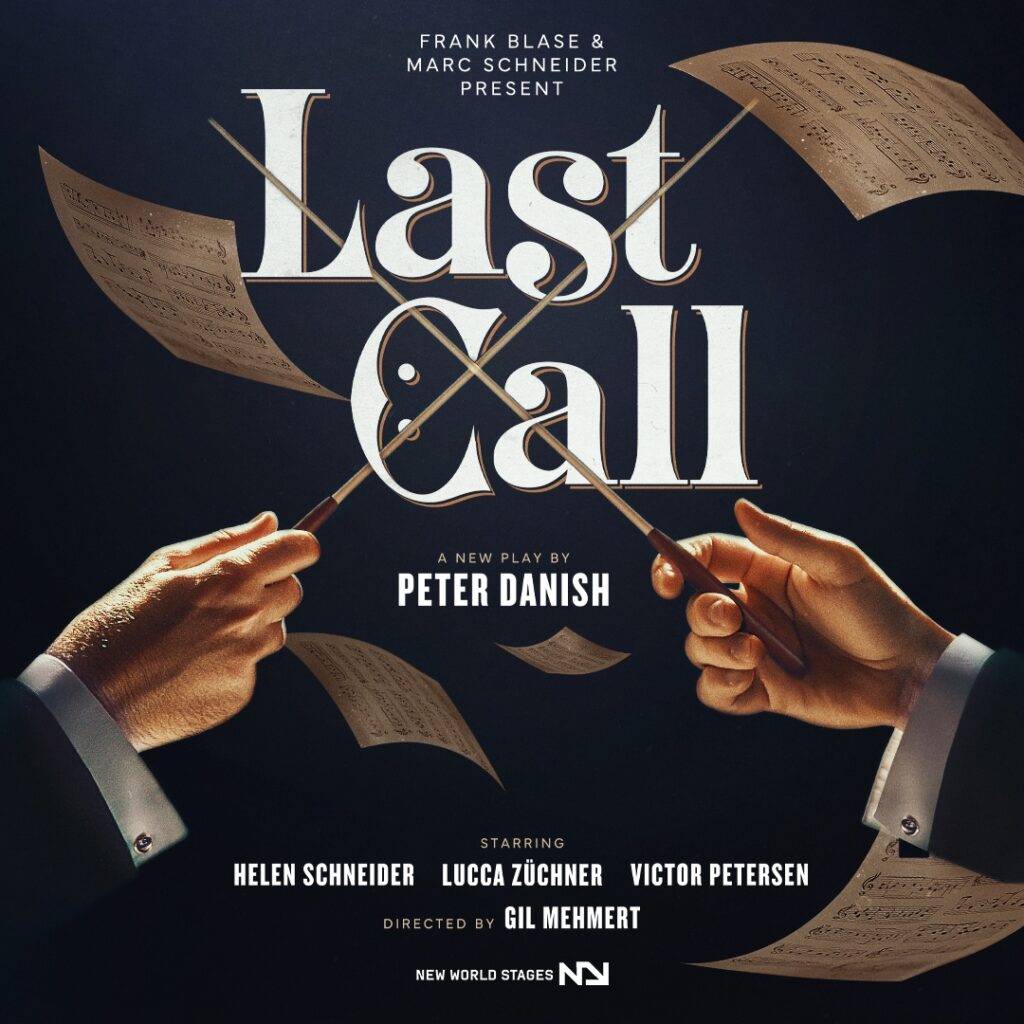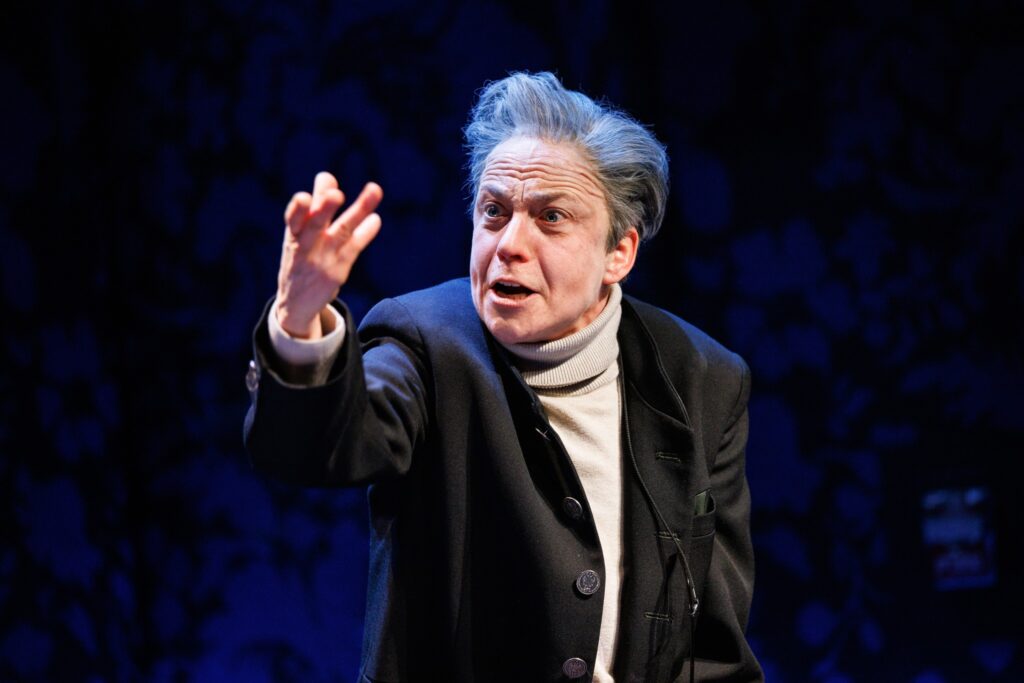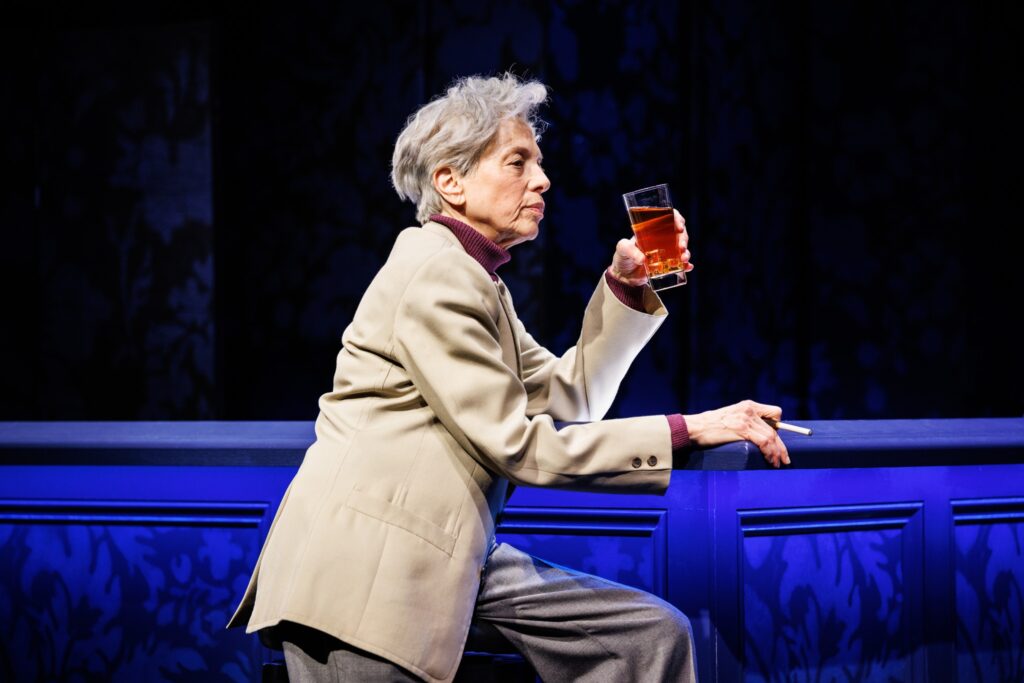
“Last Call” is a new play from Peter Danish. It focuses on the fascinating rivalry between two legends of classical music: Leonard Bernstein and Herbert von Karajan. The play reads like a love letter to these men who doubtlessly have inspired its author. There is a degree of literacy needed in this world to understand the background of all their barbs, but enough in the characters that is universally recognizable that makes it still accessible to the casual theatergoer.
The story begins in 1988 at the Sacher Hotel bar in Vienna. Peter Danish writes in Playbill that he heard the story from the bar server who served these rivals during their final meeting together.
In the title roles we have Helen Schneider as Bernstein, Lucca Züchner as Karajan, and Victor Petersen as Michael, the bartender.
The script is clever, engaging, and not afraid to touch on uncomfortable issues—Bernstein has a long resentment for Karajan, who chose to join the Nazi party in order to keep his position rather than take a stance against Hitler. It’s an argument that is unfortunately still very relevant in today’s world: the fight between high ideals and merely standing by—the mere conversation of which represents the amount of privilege both of these men had.
Most fascinating as a crossover fan is the debate between Bernstein and Karajan as to the correct approach to repertoire—is it a sacred text that cannot be deviated from, or is it a living, breathing thing that belongs to the interpreter? Is it ego or is it inspiration? This again appears to be a struggle the author must have wrestled with many times, and it is beautifully nuanced so as to appreciate the greatness of both of these men.
Schneider as Bernstein is the exasperated everyman, the indignant defender of justice—though his own relationship to the truth is strained at best. Züchner, in particular, seems to disappear into the character, and Karajan is a delicious character with his seemingly unyielding discipline. Their one-upmanship is interrupted at times by Petersen, including one touching scene when they reminisce over Callas and we hear a striking countertenor version of “Il dolce suono.”


In a world that is increasingly popularized, and even friends and family find themselves at odds, this example of two famous rivals meeting by chance—and yes, rehashing old wounds but also daring to be vulnerable—is both aspirational and needed, from those of us who have the privilege and capacity to have these types of conversations.
Catch this fantastic play until May 4 at the New World Stages in New York City.







